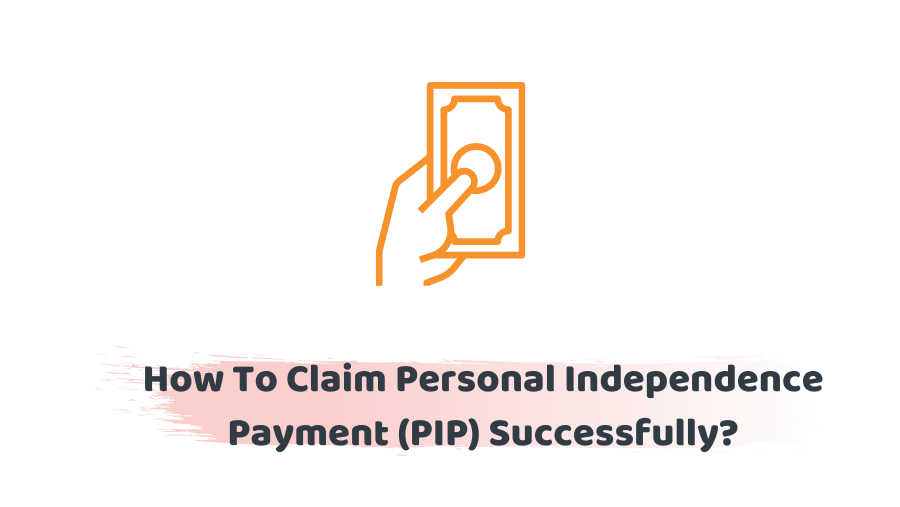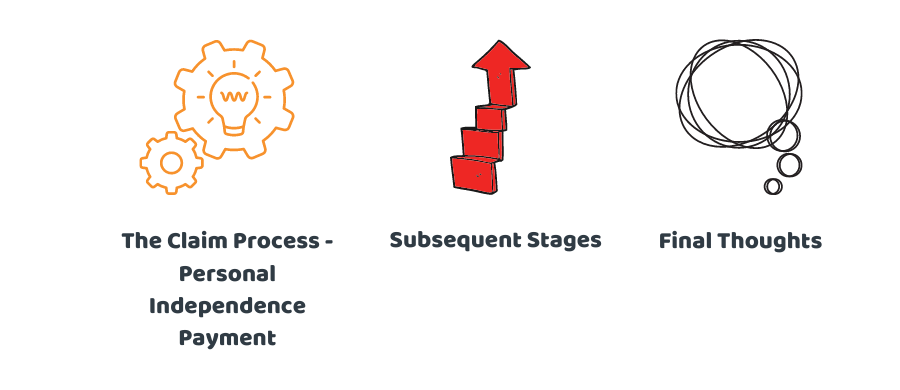Making a case for the advantage Personal Independence Payment (PIP) can consume most of the day. It can frequently require as long as 4 months from beginning the application to getting your cash (in case you’re at death’s door your case will be handled all the more rapidly).
Personal Independence Payment can’t be antedated, so you will not get any cash for the time before you make your case. You should ensure you’re ready and have all the significant data to assist you with making your case.
In this article, we will cover:
- The Claim Process – Personal Independence Payment
- Subsequent stages
- Final Thoughts
Looking for all-inclusive monthly packages? Let us take care of your affairs so that you can focus on your business.
The Claim Process – Personal Independence Payment:
There are 3 phases to your case:
- Start your case by calling the DWP
- Fill in the case structure they send you
- Go to an up-close and personal appraisal – a great many people need to do this (yet you will not in case you’re at death’s door)
It can require as long as about fourteen days for the DWP to send you a Personal Independence Payment guarantee structure. While you stand by, it’s a smart thought to contemplate how you’ll fill in the case structure and on the off chance that you need any supporting proof. Send your PIP guarantee structure back on schedule.
Start Your Claim- Fill in a PIP1 Form:
You can begin your PIP guarantee by filling in a PIP1 structure. You can do this all things considered:
- By telephone – a DWP counsel will fill in the essential case structure during the call, it should just require 20 minutes
- You can just get the PIP guarantee structures from the DWP, not on the web or from Citizens Advice.
In the event that you have a condition that makes composing troublesome, you can request to have any future PIP structures messaged to you.
Get an instant quote based on your requirements online in under 2 minutes, Sign up online, or request a callback.
Essential Information You Need to Begin your Claim:
You’ll have to have this data when you call the DWP:
- your complete name, address, and telephone number
- your National Insurance number
- your bank or building society account subtleties
- contact subtleties of your GP or other wellbeing experts you manage
- the dates and subtleties of any stay in the clinic or private consideration
- your identity or migration status
- in case you’ve been abroad for over about a month at a time over the most recent 3 years (you’ll need the dates and subtleties)
You’ll be inquired as to whether you have any conditions identifying with your psychological wellness, learning trouble, or social condition.
Subsequent Stages:
The DWP will evaluate whether you meet the essential qualification conditions.
On the off chance that you do, they’ll send you a further Personal Independence Payment structure by post. If you have a condition that makes composing troublesome, you can call the case line and request the structure by email all things considered. This structure is the place where you reveal to them what your condition means for you.
While you’re pausing, you should ponder how to fill in the PIP structure and on the off chance that you need to put together any supporting proof that goes with the structure. On the off chance that you don’t meet the essential qualification conditions, you’ll be sent a choice letter to say why you’ve been declined.
Conclusion:
In the event that you don’t send your structure back on schedule, the DWP will end your case and you’ll need to begin once more. If you can’t return the structure on schedule, discover how to inquire as to whether you can send it later.
If you’re sitting tight for quite a while for a choice about your case, you can contact your closest Citizens Advice. You can gripe to the DWP if the deferral is preposterous. Notwithstanding, there are no set guidelines concerning what is outlandish or unlawful. We hope this article helped to develop a better understanding of Personal Independence Payment.
Can’t find what you are looking for? why not speak to one of our experts and see how we can help you are looking for.
Disclaimer: This article is intended to provide general information on Personal Independence Payment.






















































